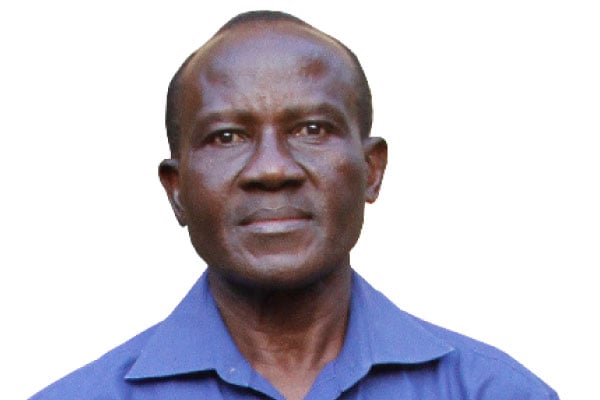Prime
As life fades on the street

Author: Alan Tacca. PHOTO/FILE
What you need to know:
- Watching this exhibition is hard in a society that squanders so much on anniversaries.
- These people relentlessly push for Mr Museveni’s personal and family rule, regardless of the decay and glaring dysfunction of the NRM government.
There is this spaghetti hospital that is being built in Lubowa for hundreds of billions of shillings. If the facility ever transforms itself from a mirage to a complex of bricks, mortar, tools and medical experts we can understand, it will provide health services to people who earn a lot of money, or who steal a lot of money, or do both.
In theory, the availability of this facility should stop or reduce their habit of going abroad for medical attention.
President Museveni has one spectacular success; namely, making his party, NRM, embrace the unwritten principle of removing the boundary between earning and stealing money from government.
Gangsters in politics, business, the military, and increasingly the religious sphere, are constantly plotting to exploit this.
In return, these people relentlessly push for Mr Museveni’s personal and family rule, regardless of the decay and glaring dysfunction of the NRM government.
The higher in income these people climb, the more likely it becomes that they will be treated at Lubowa Hospital, if it solidifies from the mirage that reporters now describe.
But the bigwigs for whom Lubowa is being built using taxpayers’ money are a minority. Below them are 40 million-plus of Ugandans, most of who go through enormous challenges to get any health care at all in government health facilities, where it is standard to have a shortage of tools, drugs, expertise and morale.
Yes, many of this majority fight for their lives through the government system and refuse to die. Others turn to private clinics, self-medication and herbalists, resulting in survivors.
Even pastors and witchdoctors have spirit-regarding clients who sometimes recover, even if the spirits are not necessarily proved to be active just because of that.
But at the very bottom are the wretched of the wretched that suffer and die silently, even secretly.
From these sufferers has risen an army. They do not threaten anyone with bombs, guns or knives. They do not proclaim death or hell for the super-privileged or those who are indifferent. They just sit or lie there on the ground on the broken pavements, exhibiting their huge sores, their twisted limbs or their grotesquely deformed little children.
Between the Old Taxi Park and the Kikuubo entrance, a boy lies beside a woman who is probably his mother. The boy’s head is much bigger than a basketball sphere; a case of severe hydrocephalus. The late afternoon sun is brilliant. Facing up, the boy’s eyes are open, but he does not blink. And he does not move at all. He could be sightless, and barely alive.
His mother is silent. The blanket of anguish on her face is several layers thick. In her begging bowl, there are two coins.
Look hard. Think. Your eyes will be welling up.
The small crippled man – or boy – with dripping mouth who used to support himself against a short baluster outside Cairo Bank on Kampala Road is no longer there. Perhaps he died.
From his abandoned post all the way downtown, every 20 or 30 metres, there is a victim with a crippling or devastating chronic condition, poverty, pain and humiliation, begging for medical help and food.
Watching this exhibition is hard in a society that squanders so much on anniversaries, armaments and corruption.
Those whose lives are fading on Kampala’s streets have no dreams about Lubowa Hospital.
But a modern State has a responsibility to address the issue of their pain, whether that State is ruled by a democrat, a demagogue, a despot or a dinosaur.
Mr Alan Tacca is a novelist, socio-political commentator.
[email protected]



